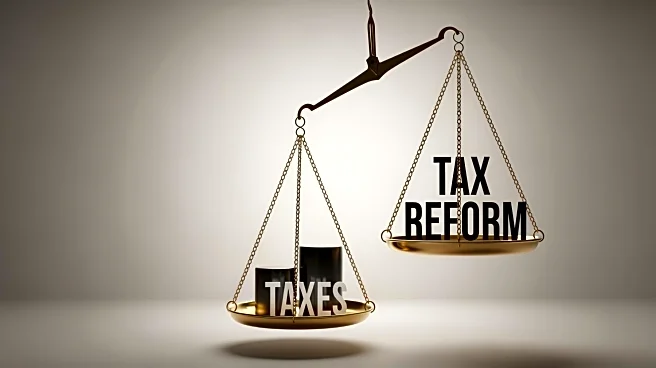What's Happening?
In Worcester, Massachusetts, businesses are advocating for tax reform due to the dual tax rate system and nonprofit exemptions. The dual tax rate, established in the 1980s, imposes a higher tax rate on commercial
properties compared to residential ones. This has led to concerns among business leaders, such as Tim Murray, president and CEO of the Worcester Regional Chamber of Commerce, who argue that the current system discourages business investment and growth. Nonprofit organizations, including major institutions like UMass Memorial Health and the College of the Holy Cross, are exempt from property taxes, although they contribute through payments in-lieu of taxes (PILOT) agreements. These agreements, however, do not match the fluctuating property tax rates faced by for-profit businesses. Utility companies remain the largest contributors to the city's tax revenue, but the disparity in tax obligations between nonprofits and businesses has sparked calls for a single tax rate system.
Why It's Important?
The tax structure in Worcester has significant implications for the city's economic development. The dual tax rate and nonprofit exemptions create a financial burden on businesses, potentially deterring new investments and expansions. This situation is particularly impactful in Gateway Cities like Worcester, where economic growth is crucial. A single tax rate could level the playing field, encouraging more businesses to invest in the area, thereby boosting the local economy. Additionally, the reliance on PILOT agreements with nonprofits highlights the need for a more equitable tax system that ensures all entities benefiting from city services contribute fairly. The ongoing debate over tax reform reflects broader challenges faced by municipalities in balancing revenue generation with economic competitiveness.
What's Next?
The Worcester City Council is considering changes to the tax code, with discussions around implementing a single tax rate gaining traction. Business leaders and city officials are advocating for a gradual transition to avoid sudden financial impacts on residents. The council is also exploring alternative taxation methods, such as a land-value tax, which could incentivize property improvements without increasing tax burdens. As the city navigates these potential reforms, stakeholders will need to balance the interests of businesses, nonprofits, and residents to foster a sustainable economic environment.
Beyond the Headlines
The tax reform debate in Worcester touches on broader themes of economic equity and urban development. The current system highlights the tension between fostering a business-friendly environment and maintaining essential public services funded by tax revenues. The outcome of this debate could set a precedent for other cities grappling with similar issues, particularly in regions with a significant presence of tax-exempt institutions. The discussions also underscore the importance of innovative tax policies that align with contemporary economic realities and community needs.









